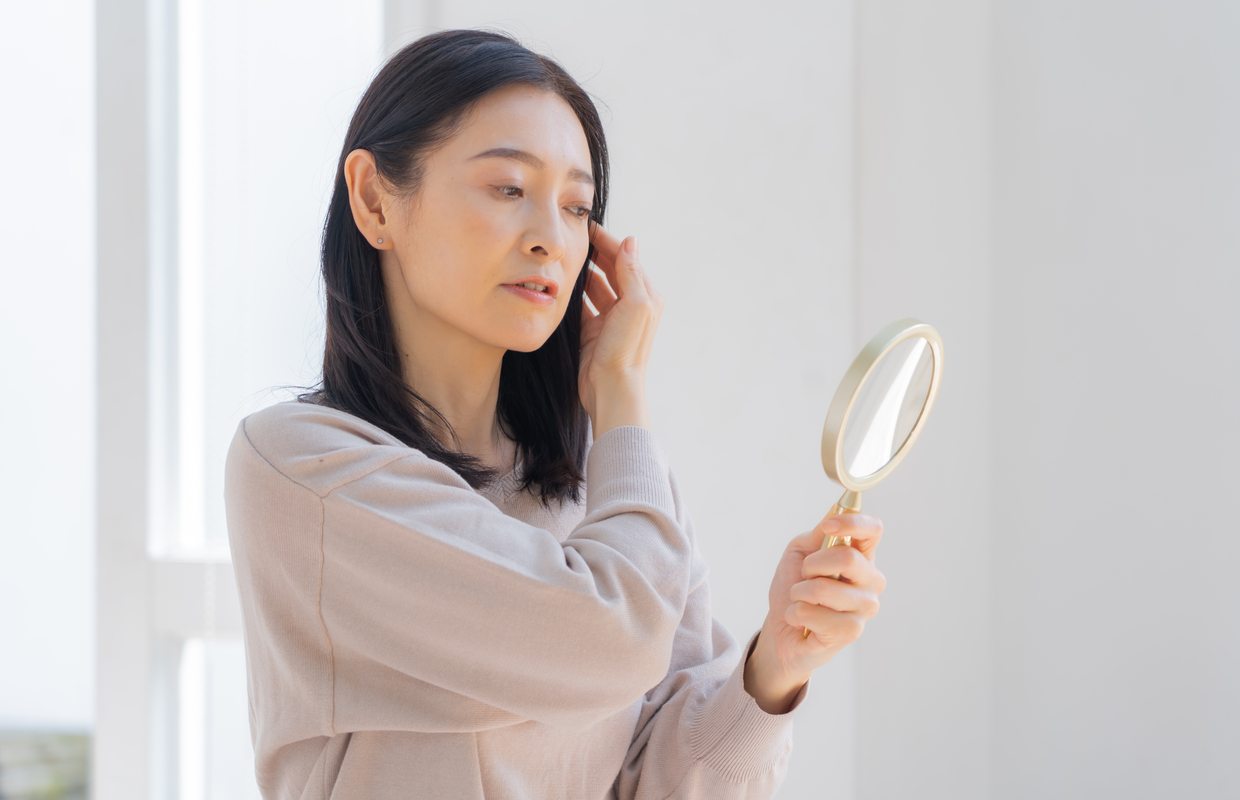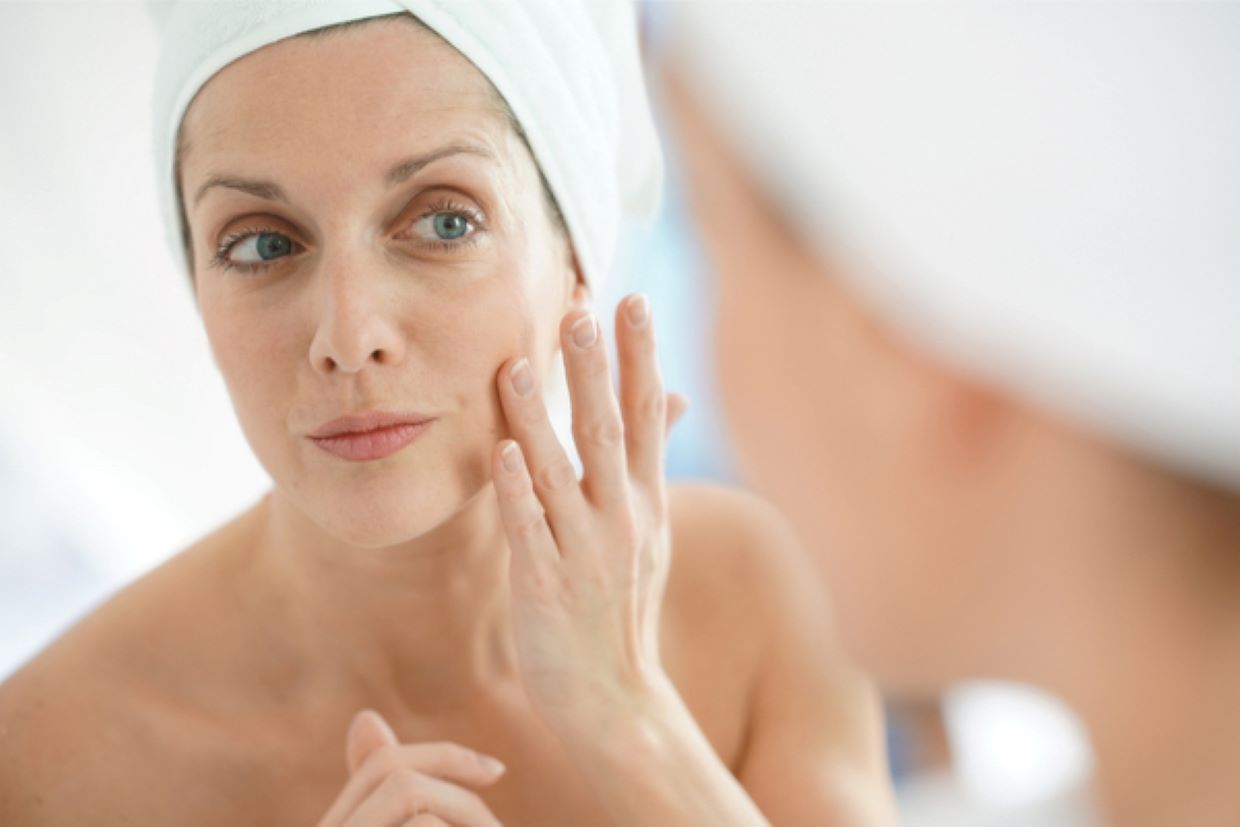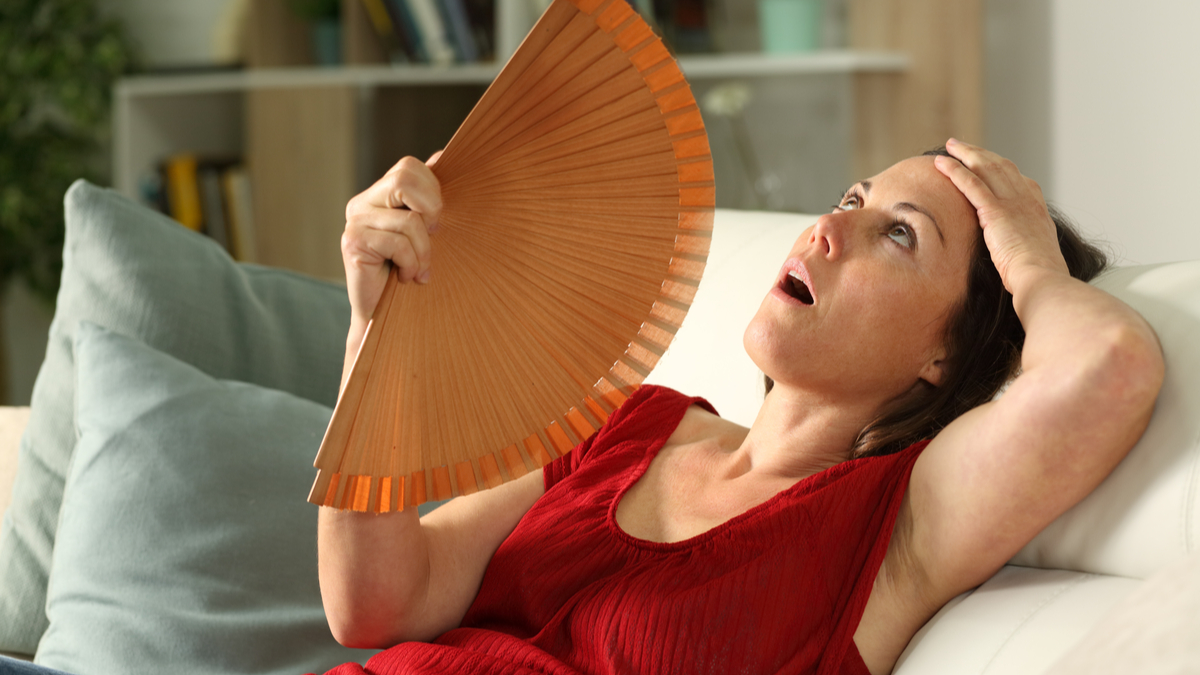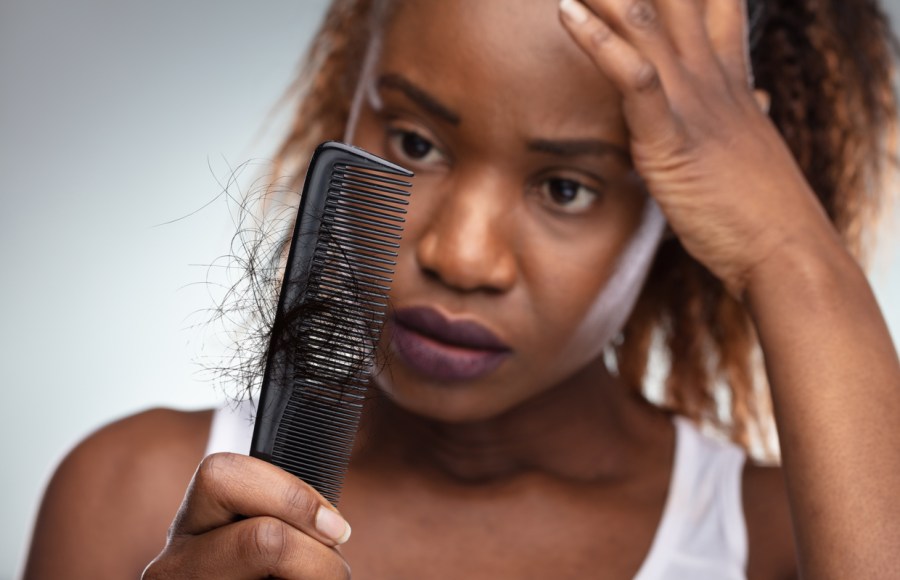Today (18 October) is World Menopause Day. This stage of life can be confusing for many women. With every twinge, symptom and change, many of us are left wondering: is it menopause? We chatted to some women’s health experts who revealed some unusual symptoms which could indicate the approach of menopause…
Menopause marks the time when women naturally end their menstrual cycles and are no longer able to fall pregnant naturally. The average age for women to experience menopause in the UK is fifty-one. However, around one in a hundred women can enter menopause before forty years of age. In rare cases, even in their thirties.
It’s estimated that around 81% of postmenopausal women will have experienced at least one of the thirty-four known menopause symptoms. However, while symptoms such as hot flushes are well-researched, many people are left feeling confused about the array of lesser-known symptoms that could be affecting them.
To help clear up this confusion, Miss Rebecca Gibbs, obstetrician, and gynaecologist at Claire Mellon’s practice at The Portland Hospital, and Ms Tania Adib, consultant gynaecologist and Head of the Menopause Clinic at The Lister Hospital, discuss the five most unusual symptoms of the menopause.

Hair Loss
According to Rebecca: ‘Hair loss can occur during the menopause because of a hormonal imbalance. Specifically, it can be due to a lower production of oestrogen and progesterone. These hormones help hair to grow faster and thicker and stay on the head for longer periods of time. However, when your levels of oestrogen and progesterone drop, this causes hair to grow more slowly and become much thinner.
‘When these hormone levels decrease, the ratio of female hormones to the androgens – a group of male hormones that can shrink hair follicles on the head – becomes imbalanced. This results in hair loss.
‘If anyone is concerned about hair loss during the menopause, then I’d recommend speaking to your GP as soon as you notice a change. Your doctor might check for a nutritional deficiency, which can be treated with supplements. They may also consider assessing stress levels, hormone levels and any chronic illnesses to decide on the best course of treatment.’
Fluttering heart
Worried about the sudden onset of palpitations? Tania explains that it could be down to menopause: ‘The sensation of your heart fluttering can be quite alarming, and it’s always important to get this checked out as soon as possible, to rule out any other underlying causes. However, these palpitations are often the result of a surge in hormones. They should settle down as your body adjusts to its new hormone levels.
‘Palpitations will often feel like your heart is beating much faster than usual or like it has skipped a beat. Women can also experience these heart flutters during other times of hormonal shifts. For example, palpitations can occur during pregnancy or menstruation.
‘If you are only experiencing palpitations occasionally and they only last a few seconds, then you shouldn’t need to see a doctor. However, if your palpitations become more frequent and they are accompanied by symptoms such as shortness of breath and chest pain, then you will need to see a medical expert as a matter of urgency.’

Dry and Irritable Skin
Hormones can wreak havoc on our skin. Rebecca explains: ‘Oestrogen helps to stimulate the formation of ‘skin-soothing’ oils and collagen which diminish as soon as women reach the menopause. The reduction of oestrogen levels during the menopause can also reduce your body’s ability to retain moisture. This can result in dry and itchy skin.
‘Areas such as your t-zone and elbows may be one of the first areas to become affected, however, dry skin can affect your whole body, including the chest, face, back, legs and even your nails.
‘To help soothe dry skin, I would recommend including plenty of essential fatty acids, such as omega 3, in your diet. Omega 3 can be found in food such as salmon, eggs or walnuts. It helps to produce your skin’s natural oil barrier.
‘Another way to keep your skin healthy is to wear protective sunscreen every day. Emollient moisturisers, available over the counter, can provide quick relief to reduce itch and soothe dryness.’
Burning Tongue
This is certainly one of the more unusual menopause symptoms: menopause can cause your mouth to feel like it’s burning. Ms Tania Adib says: ‘Burning mouth syndrome is a condition that causes a burning sensation in and around your mouth. The sensation can develop suddenly and occur anywhere in your mouth. It is most often felt on the roof, tongue, and lips.
‘The cause of developing burning mouth syndrome in the menopause is primarily due to a hormone balance, and more specifically, a drop in oestrogen levels. As well as a burning feeling in the mouth, this drop in hormone levels can also cause a metallic taste because of a reduction in saliva production.
‘Many women find that the condition is triggered by eating spicy foods, or strong mint flavours such as those found in toothpaste. Symptoms can often be alleviated by drinking cold or iced water or by stimulating saliva through chewing gum.
‘Hormone replacement therapy (HRT) may also be an effective method to help ease menopause symptoms. However, it’s best to speak to your GP about your symptoms first, so they can evaluate how effective they think this therapy would be.’

Body Odour
If you’re struggling with excessive sweat, menopause could be to blame. According to Rebecca: ‘Excessive sweating and body odour can cause issues for some women during the menopause. This is especially true if they are also experiencing hot flushes.
‘Some women also feel like their body odour has started smelling stronger. However, your sense of smell can also change during the menopause, so people may feel like they smell one way, when they actually don’t.
‘Dips in oestrogen levels can often trigger hot flushes and night sweats. This simply means you sweat more, resulting in more body odour. The menopause can also be a time filled with higher levels of stress and anxiety, which can also cause people to sweat more.
‘If you are concerned about your body odour, I’d recommend sleeping in a well-ventilated room with loose-fitting nightwear. There are treatments available, such as prescription-strength deodorants or Botox to paralyse the sweat glands. It’s best to speak to your GP first to check for any other underlying causes.’







